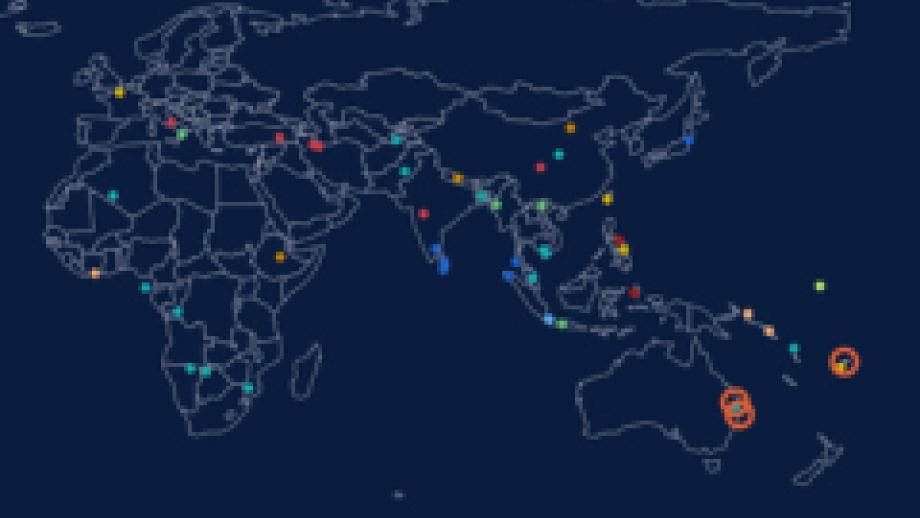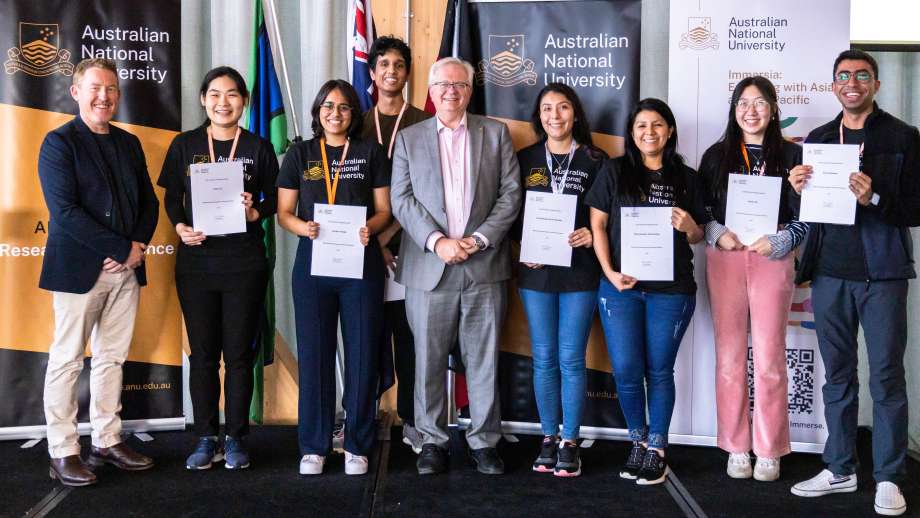Birthing Work and Matrescence: the neglected aspect of maternity care
The ANU Gender Institute and Maternal Health Matters Inc. invite you to join us online for a discussion with Professor Katharine McKinnon, Dr Julie P Smith, Dr Sophie Brock and Dr Joan Garvan.
Australia faces a challenge in achieving high quality maternity care in a safe, respectful environment so that women and birthing people emerge healthy and well. Perinatal wellbeing is a complex concept that is more than the absence of illness. Furthermore, an extensive eight nation study commissioned by the European Union concluded that the transition to parenthood was "a critical tipping point on the road to gender equality" (2006, p.11). This finding is of significance for women in Australia, underlining the need for improved, 21st century maternal & child health services & support for young families.
Themes presenters will speak to
There are significant concerns about a continuing medicalization of birth that is leading to poor outcomes for women and their families, conditions that are exacerbated by financial pressures and adjustment issues in the early years afterwards. There is an assemblage of factors that come into play in the spaces and experiences of the birth. Katharine McKinnon questions who does the work of childbirth? She expands the boundaries for who, and what, is responsible for this collective labour and highlights the interdependencies that characterise it. Julie Smith speaks to the 2023 Lancet Series on Breastfeeding which highlights how under-funded maternity services, pervasive corporate influence and conflicts of interest, and a health system culture that privileges commercial technologies and biomedical interventions has promoted milk formula sales and undermined breastfeeding. Julie calls for a reconfiguration towards more 'woman-centred' and 'culturally appropriate' maternity care. Furthermore, the notion of Matrescence, developed by anthropologist Dana Raphael, is increasingly being used to describe the process of becoming a mother. This covers the physical, psychological, and emotional changes women go through during the transition to parenthood and is highly relevant to the experience of women today, yet remains a neglected aspect of maternity care.
Presenters
Professor Katharine McKinnon is Director of the Centre for Sustainable Communities at the University of Canberra. She is a human geographer whose work engages with a broad range of communities in Australia and the Asia-Pacific, engaging in qualitative and participatory social research on questions of community economies, gender, development and care. Her current research considers questions of: how to achieve gender equity in ways that suit the lives and livelihoods of people in their different places and communities; how to reshape enterprises and organisations around priorities of care and inclusivity; and how to put an ethics of care for people and environment at the heart of economies and livelihoods.
Dr Julie P Smith is an Honorary Associate Professor in the ANU National Centre for Epidemiology and Population Health. Her unique contribution has been in using a feminist economic perspective to highlight the fiscal and economic value of women's breastfeeding work. Dr Smith has advised the US Surgeon-General Office and the WHO on the economics of breastfeeding and conducted reviews for WHO on marketing and for the Australian Department of Health on breastfeeding interventions. Dr Smith has over 20 years' grass roots experience as a trained breastfeeding counsellor and served on the board of directors of the Australian Breastfeeding Association for nearly a decade. She has also worked with international civil society organisations on maternity protection, and the need for investments in breastfeeding. Recently she partnered with Alive & Thrive South-East Asia to develop the Mothers' Milk Tool.
Dr Sophie Brock is a sociologist who specialises in Motherhood Studies. She creates and delivers independent training and coursework to professionals, business owners, and practitioners who work with Mothers, supporting them to integrate sociological understandings of motherhood into their work and practice. She also hosts a podcast The Good Enough Mother offering reflections on mothering as a practice and motherhood as a social construct to both mothers and professionals. Sophie is a single Mother to her young daughter and lives in Sydney, Australia.
Dr Joan Garvan was awarded a doctorate in gender and sociology from the Australian National University, her thesis title: Maternal Ambivalence in contemporary Australia: navigating equity and care. She has an internet site, offered online professional development courses, and continues to work as an advocate with Maternal Health Matters. Joan is an inaugural member of Maternal Scholars Australia and a Board member of Maternal Health Matters. Her research brought together an international body of research on the Transition to Parenting and she considers implications from the macro - the social structuring of care to the micro - the mother-infant relationship.
Zoom link: https://anu.zoom.us/j/2774243498?pwd=cFVCNW8rK0pwMHRzV2tIZ25QUkxsUT09
Meeting ID: 277 424 3498
Password: 489142
Location
Contact
- Gender Institute



